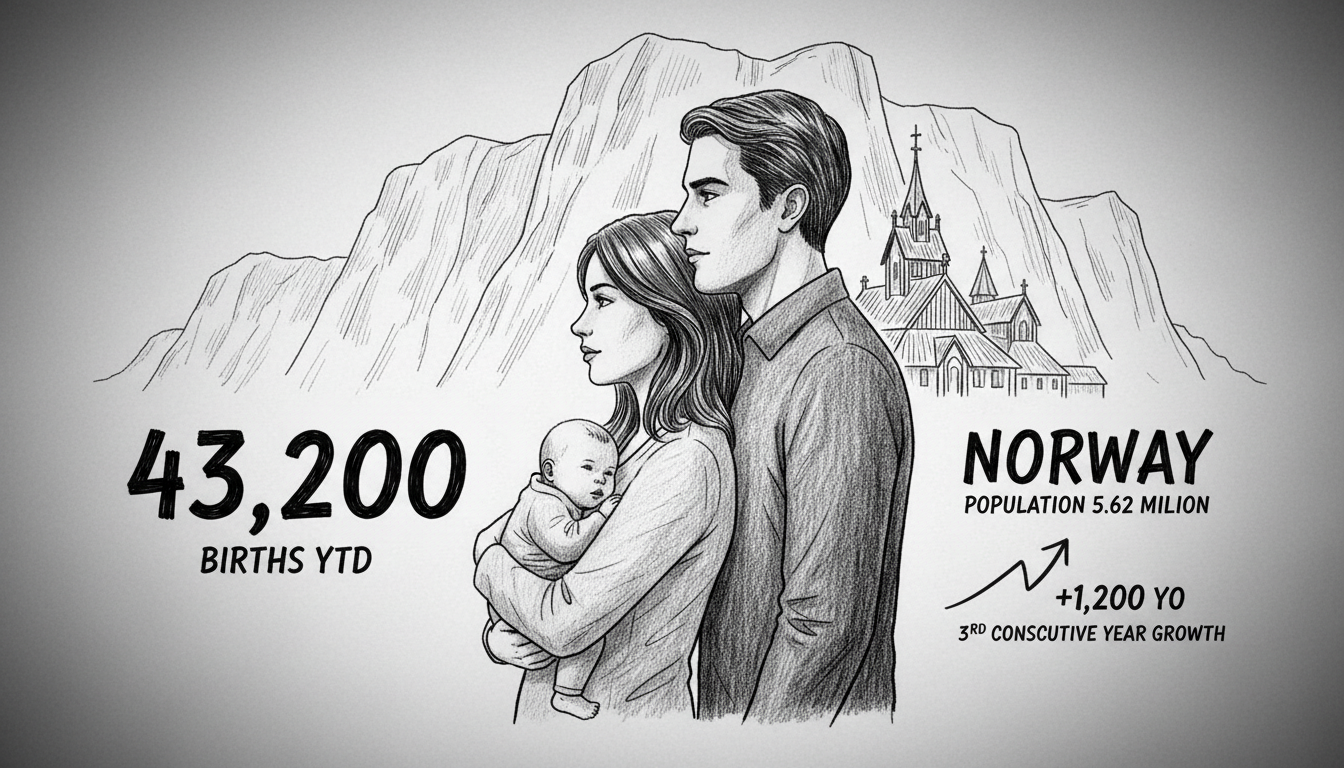Norway's birth numbers show consistent growth with 43,200 children born so far this year. The latest quarterly data reveals 15,400 births occurred during the third quarter alone. This represents an increase of 1,200 births compared to the same period last year.
Senior advisor Magnus Haug from Statistics Norway said in a statement that if current trends continue, the country will see rising birth rates for the third consecutive year. The so-called total fertility rate appears to be climbing steadily.
Norway's population grew by 11,400 people during this period. The country now counts 5.62 million inhabitants. This demographic expansion reflects broader Nordic population trends that have shown resilience despite economic uncertainties.
What do these Norwegian birth statistics mean for the country's future? The sustained increase suggests growing confidence among Norwegian families. The Nordic welfare model, with its strong parental leave policies and childcare support, likely contributes to this positive trend.
Northern European countries have generally maintained more stable birth rates than their southern counterparts. Norway's combination of economic security and family-friendly policies creates an environment where people feel comfortable having children. The consistent population growth also helps address workforce challenges in an aging continent.
These Norwegian fertility rates matter beyond national borders. As many developed nations struggle with declining populations, Norway's experience offers insights into what policies might support demographic stability. The country maintains one of Europe's most robust social safety nets, which appears to correlate with family formation decisions.
Looking ahead, fourth quarter data will determine whether 2025 marks the third straight year of increasing Norwegian births. The pattern suggests careful optimism about the country's demographic future. Other Nordic nations will watch these developments closely as they shape their own family policies.
Norway's population growth continues despite global economic headwinds. The country maintains its position as one of Europe's most demographically stable nations. This provides advantages for long-term economic planning and social welfare systems.

